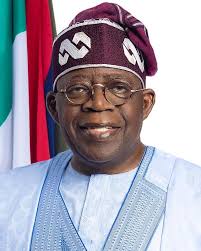The Human Rights Writers Association of Nigeria (HURIWA) has expressed deep concern over the conflicting financial claims and borrowing policies of the Federal Government, questioning the management of Nigeria’s economy under President Bola Ahmed Tinubu.
In a strongly worded statement issued on Friday, the civil rights group criticized the government for failing to align its rhetoric on savings with its actions on debt accumulation, warning that the inconsistency is damaging public trust.
HURIWA highlighted that just days after the Minister of Finance and Coordinating Minister of the Economy, Mr. Wale Edun, lauded the government’s $20 billion savings from fuel subsidy removal and foreign exchange reforms, the Senate approved a fresh loan request of $2.2 billion.
READ ALSO:
23 NDLEA officers graduate from German-Sponsored training on combating drug trafficking
Teacher’s Fury: Corps member beaten, uniform torn to shreds in Ilorin
Electricity Subsidy: FG’s burden rises to ₦2.4trn amid economic challenges
The loan is part of efforts to plug the ₦9.7 trillion budget deficit for 2024, despite assurances that the savings would significantly ease fiscal pressures.
The association, through its National Coordinator, Comr. Emmanuel Onwubiko, described the government’s financial approach as “troublingly inconsistent.” HURIWA questioned the veracity of the $20 billion savings, demanding a comprehensive expenditure profile to clarify how the funds were utilized or where they are currently held.
“If this government has genuinely saved $20 billion as claimed, why is there an urgent need for further borrowing? This contradiction raises serious questions about the accuracy of the government’s statements. Is the $20 billion savings an ‘audio’ achievement, or has it been mismanaged? Nigerians deserve to know the truth,” the group emphasized.
HURIWA accused the government of misleading citizens and called for an immediate public disclosure of the savings’ details. “Transparency in fiscal management is the cornerstone of good governance. If this money truly exists, the government should provide clear evidence of its allocation. If the claim is untrue, Nigerians deserve an unreserved apology for this misrepresentation,” the statement read.
HURIWA expressed grave concerns over the rapid rise in Nigeria’s debt profile. As of June 2024, the nation’s total public debt stood at ₦134 trillion, climbing to ₦138 trillion by November. These figures represent a sharp increase from previous years, signaling a potential debt crisis.
“In a country where public funds are allegedly being saved and revenues generated in trillions, the persistent borrowing trend is not only baffling but unjustifiable. This pattern suggests either gross mismanagement or deliberate dishonesty,” HURIWA asserted.
The association criticized the National Assembly for its complacency, accusing lawmakers of rubber-stamping every loan request without proper scrutiny. “The legislative arm has a constitutional duty to safeguard the economic future of this country. Approving loan requests without critical evaluation undermines this responsibility,” HURIWA said.
HURIWA urged the Federal Government to halt unnecessary borrowing, emphasizing the need for fiscal discipline. Drawing comparisons to Nigeria’s early leaders, the association noted that post-independence and post-civil war governments managed the economy without plunging the nation into insurmountable debt.
“Our founding fathers faced significant challenges but did not leave future generations burdened with massive debts. Today’s leaders must emulate this legacy by prioritizing fiscal responsibility and reducing reliance on borrowing,” the group stated.
HURIWA further criticized the disconnect between government claims of substantial revenue generation and the visible economic realities. “The Nigerian Customs Service has reportedly generated trillions of naira, yet these figures have no tangible impact on economic relief for citizens. Where are these trillions being channeled?” the association questioned.
HURIWA called on civil society organizations, professional bodies, and Nigerians at large to hold the government accountable for its fiscal policies. The group emphasized that unchecked borrowing and financial mismanagement would have dire consequences for future generations.
“The current trajectory is unsustainable and amounts to financial recklessness. The government must halt unnecessary borrowing, provide transparent accounts of public funds, and adopt a more responsible approach to fiscal management,” HURIWA urged.

